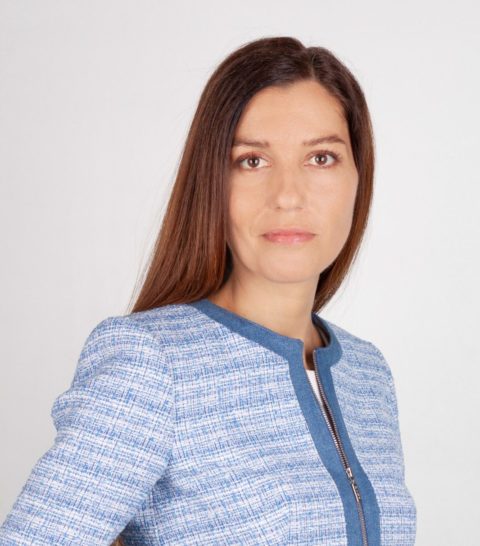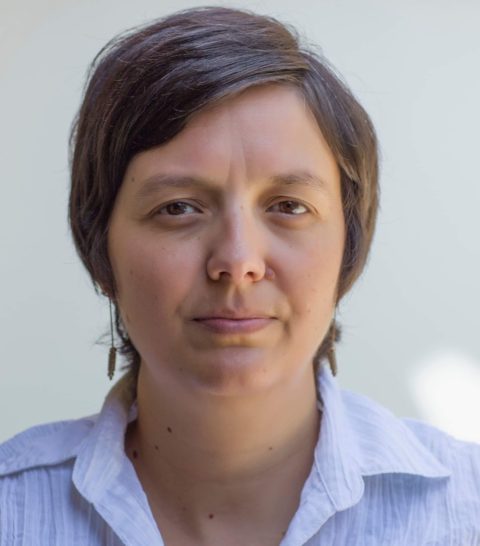Sylvia Vitlarova
Associate
Sylvia joined our team in 2020 and she specializes in Renewable Energy, Intellectual Property Law, Corporate and Commercial Law and Tax Law.
Sylvia Vitlarova has been a key member of our law firm for over three years. With a robust legal foundation acquired in Heidelberg, Germany, she further specialised in EU Law by obtaining an LLM from the University of Maastricht, Netherlands. Fluent in English, German, and Bulgarian, Sylvia’s international background enriches her ability to navigate legal complexities with a global perspective. Her specialised focus includes Renewable Energy, Corporate and Commercial, and Intellectual Property Law.
In the domain of Renewable Energy Law, Sylvia provides legal counsel on the intricate aspects of sustainable energy projects. Her expertise spans navigating regulatory frameworks, offering strategic insights, and ensuring compliance with evolving environmental and energy laws.
Within Corporate and Commercial Law, Sylvia extends guidance to businesses, facilitating legal compliance, addressing regulatory aspects, and aiding in sound decision-making.
Additionally, her proficiency extends to Intellectual Property Law, where she adeptly safeguards the intellectual assets of our clients, providing tailored solutions for protection, registration, and enforcement.
Qualifications: Maastricht University, University of Heidelberg
Languages Spoken: Bulgarian, German and English
Office Location: Sofia
-
Corporate and M&A
Overview We see corporate and commercial work and M&A as the core of our practice. We serve a range of international clients in different sectors of the economy and advise on a broad variety of corporate and commercial work. Our lawyers have in-depth knowledge and abundant practical experience of local, as well as international transactions […]
-
Renewable Energy
Overview With Bulgaria dedicated to reducing carbon emissions, the significance of renewable energy has never been greater. Our team of renewable energy lawyers comprehends the commercial, policy, regulatory and financial complexities that confront our clients and boasts a wealth of experience in driving renewable energy projects to successful fruition. Our renewable energy lawyers provide expert […]
- German-speaking Desk (Deutschsprachige Abteilung)
-
Intellectual Property
At NBLO, we understand that maintaining ownership over your brand and safeguarding your innovative ideas, products and solutions are key to the value of a business. We have lawyers specialised in intellectual property matters, able to deliver superb advice and counsel. Our team will guide you to effectively licence and protect your technology assets. We […]
-
Private Companies
Private companies are the backbone of the economy with a variety of activities aimed at millions of clients. We have abundant experience with Bulgaria and foreign clients active across the world in areas as diverse as online services, gaming, cryptocurrencies, and real estate. We at NBLO regularly assist private company incorporation and provide an all-encompassing […]
-
Business Immigration
We are aware that nowadays doing business is a global adventure and challenge. Bulgaria is a small and open economy, and its labour market benefits from a steady flow of human capital in many directions. Firms and organisations need integrated, prompt and carefully executed solutions to employment and immigration issues when working across borders. NBLO […]
-
Citizenship and Immigration
We advise individuals and families planning for their future and their legacy. We understand that immigration can be complex, often stressful and traumatic. With our professional advice and sensitive approach we will guide you through all your options and will help you to achieve the best possible outcome. We aim to accomplish this in the […]
-
How to Open a Bank Account in Bulgaria as a Foreign Business
In this article, we provide an overview of the criterion that overseas incorporated businesses must generally fulfil in order to open a bank account in Bulgaria. We have restricted our analysis to organisations that are structured as companies or corporations in their home jurisdiction. Although Bulgarian law tends to recognise the legal forms of other […]
-
EU FDI Legal Framework as applicable in Bulgaria
The European Union’s foreign direct investment (FDI) landscape shifted significantly with the adoption of the EU FDI Regulation (Regulation) in 2019. This established minimum requirements for Member States on FDI controls, cross-border cooperation in respect of FDI control, and information-sharing among Member States and between them and the European Commission. EU FDI Regulation Overview Sensitive […]
-
Power Purchase Agreements Explained
A Power Purchase Agreement (PPA) is a legally binding contract that specifies the terms and conditions under which a power plant sells electricity to a buyer over a set period. This article sets out essential aspects of a typical Power Purchase Agreement and goes over its key components and stages, and important terms. Parties to […]
-
Connecting to the Electrical Grid – Stage 4: Installation of connection equipment and launch
Once the applicant has entered into a Grid Connection Agreement (GCA) with the District Network Operator (DNO) (also known as the District System Operator (DSO)), the DNO issues the design drafts for the installation of the “connection equipment”. Typically in the Bulgarian market, the installation of this equipment is funded by the DNO at its […]
-
Connecting to the Electrical Grid – Stage 3: The Grid Connection Agreement
After receiving the DNO’s formal statement and finalising any Preliminary Grid Connection Agreement (PGCA) (where required – see our note on Stage 2), applicants in Bulgaria submit an application pack for a Grid Connection Agreement (GCA). The GCA is the formal contract between the DNO and the project developer / project owner up until the […]
-
Connecting to the Electrical Grid – Stage 2: Formal Statement and Preliminary Grid Connection Agreement
After submitting the connection request (for more information, please see our article on the topic of requests), the district network operator (DNO) is required in Bulgaria to issue the applicant with a formal statement. This confirms the planning conditions under which the applicant’s project can be connected to the grid. This statement must be issued […]
-
Connecting to the Electrical Grid – Stage 1: The Connection Request
Connecting a project to the grid is crucial to the viability of many photovoltaic (PV) electricity generation projects and consequently for their promoters, developers and others who are interested in a PV project’s success. In Bulgaria, this process can be complex and involves compliance with various laws and regulations. In this series of articles, we […]
-
Voluntary and compulsory psychiatric treatment in Bulgaria
Since the start of the COVID-19 pandemic, the global prevalence of mental health illness has increased, according to World Health Organization (WHO) studies. The family members of persons with serious mental health illness are often in a difficult position as carers, and because of the impact of their loved ones’ illness on them and on the […]
-
Prison Conditions and the Protection of Prisoners’ Rights in the EU
EU Member States have been experiencing human-rights related issues pertaining to the prison conditions lately. In 2019, the European Prison Observatory conducted a study, which determined that prisons across the EU suffer from overcrowding. Consequently, the standards of hygiene and privacy have also deteriorated. Poor detention conditions can amount to a violation of fundamental rights, […]
-
Navigating the UK Service Supplier Visa
Since Brexit, EU citizens have faced significant changes around the rules and regulations for residing and working in the UK. In general, if an EU citizen has not lived in the UK prior to 31 December 2020, they must apply for a visa in order to reside and work in the country. The UK Home […]
-
Post-Brexit: EU law derived rights for family members of settled UK citizens
Are you a family member of UK citizens holding an EU residence permit in a country in the EU? Do you wish to reside in an EU Member State but are concerned that this would be impossible after the end of the Transition Period (TP)? We outline some of the options you may have now […]















